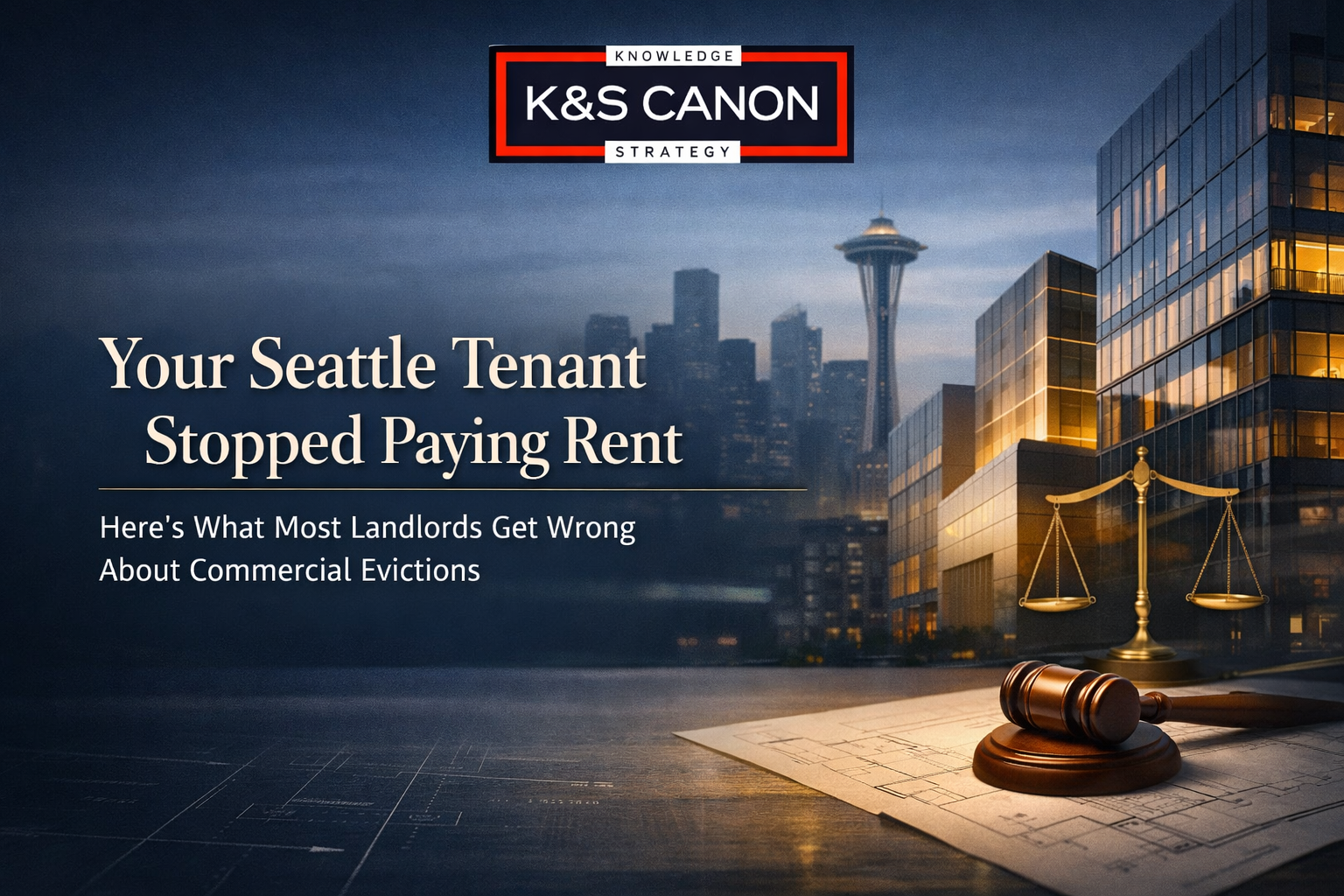Washington Commercial Real Estate Zoning and Development Compliance: Local Requirements That Matter

Zoning compliance forms the backbone of successful commercial real estate development in Washington State. Recent legislative changes and local municipal updates have created new opportunities and challenges for property owners and developers. The streamlined subdivision process and housing development initiatives affecting residential markets can also impact commercial property decisions, particularly for mixed-use developments.
Washington's Growth Management Act requires cities and counties to plan for population and economic growth while protecting natural resources. This framework creates specific zoning requirements that affect how commercial properties can be developed, expanded, or repurposed. Zoning represents just one aspect of the broader compliance and regulatory requirements in commercial real estate that affect properties in Washington.
Local Zoning Authority and Variations
Each Washington municipality maintains its own zoning ordinances, which means requirements can vary dramatically between neighboring cities. What's permitted in Seattle may be prohibited in Bellevue, and Spokane's requirements differ from Vancouver's regulations.
Use Classifications: Commercial properties fall into various zoning categories such as neighborhood commercial, general commercial, or mixed-use zones. Each classification allows different types of businesses and has specific development standards for building height, setbacks, parking, and signage.
Conditional Use Permits: Some business types require conditional use permits even in commercially zoned areas. These permits involve public hearings and can add months to your project timeline. Auto dealerships, gas stations, and drive-through restaurants commonly require conditional use approval.
Nonconforming Uses: Existing businesses that don't match current zoning requirements may continue operating as nonconforming uses. Expansion or modification of nonconforming uses faces strict limitations that can affect property value and development potential.
Parking and Transportation Requirements
Washington cities often have different approaches to parking requirements for commercial properties. Seattle has reduced parking minimums in many areas to encourage public transit use, while suburban communities often maintain higher parking ratios.
Transit-Oriented Development: Properties near light rail stations or bus rapid transit lines may qualify for reduced parking requirements. This can substantially reduce development costs and increase building efficiency.
Trip Generation Studies: Large commercial developments typically need traffic impact analyses. These studies evaluate how your project affects local traffic patterns and may require mitigation measures like traffic signals or road improvements.
Building Height and Density Regulations
Height limits vary widely across Washington jurisdictions. Downtown Seattle allows for towers exceeding 400 feet, while many suburban areas limit commercial buildings to 35 feet or less.
Floor Area Ratio (FAR): Many jurisdictions use FAR limits to control building density. These limits affect how much floor area you can build relative to your lot size, which directly impacts project economics.
Design Standards: Some cities require specific architectural features or materials for commercial buildings. These design standards can affect both construction costs and approval timelines.
Recent Legislative Changes Affecting Development
The Washington State Legislature's 2025 focus on housing affordability includes reforms to the subdivision process that may benefit commercial developers. Streamlined lot splitting could create opportunities for commercial projects in areas where the market struggles to meet demand.
Impact on Commercial Development: These housing-focused changes often include provisions that affect commercial zoning, particularly for mixed-use projects that combine residential and commercial space.
Keep residential trends in mind when choosing a location for your commercial business. Areas experiencing residential growth often present opportunities for retail and service businesses.
Permitting and Approval Processes
Commercial development permits involve multiple city departments and review stages. Building permits, site plan approval, and utility connections all have separate requirements and timelines.
Pre-Application Meetings: Most Washington cities offer pre-application meetings where you can discuss your project with planning staff before submitting formal applications. These meetings help identify potential issues early and can save time later.
SEPA Integration: Environmental review under the State Environmental Policy Act often runs parallel to zoning and permitting processes. Coordinating these reviews prevents delays and reduces overall project costs. The Washington State Department of Commerce provides resources on the Growth Management Act and local planning requirements.
Practical Compliance Strategies
It may help you to research zoning requirements thoroughly before purchasing commercial property. Zoning maps and development standards are typically available on city websites, but detailed projects benefit from direct consultation with planning staff.
Consider hiring local land use attorneys or consultants for substantial projects. These professionals know local procedures and can handle approval processes more efficiently than property owners working alone.
Plan for longer approval timelines in popular growth areas. High development activity can create backlogs in planning departments, extending review periods beyond normal timeframes.
Monitor proposed zoning changes in your area. Cities regularly update zoning codes, and these changes can create opportunities or challenges for existing properties.
This information is provided for educational purposes only. Zoning and development requirements vary by jurisdiction and change frequently. Please consult with local planning departments and qualified land use professionals for guidance on your specific project.
Planning a commercial development or facing zoning challenges? Contact K&S Canon to discuss your specific situation.




